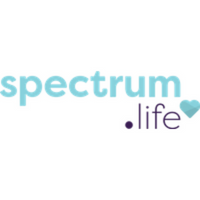Why supporting menstruation in the workplace is a vital investment
In recent years, the conversation around women’s health in the workplace has gained significant momentum. But there’s one subject that needs to be in the spotlight: menstruation.
With staggering statistics revealing the profound impact of period symptoms on productivity and wellbeing, it has become increasingly evident that prioritising menstrual health and accommodating the diverse needs of menstruating people is not just a matter of compassion, but also has an impact on overall business performance.
According to McKinsey, improving women’s health could add at least $1trn every year to the global economy by 2040. This staggering figure underscores the economic significance of investing in initiatives that address period health and management in the workplace.
However, despite the compelling case for action, the reality is that many organisations still fall short in providing adequate support for menstruation.
80% experience period pain
Periods can wreak havoc on female physiological and psychological wellbeing.
The Chartered Institute of Personnel and Development says that 80% of the menstruating workforce will experience period pain at some time, with 53% unable to go to work due to their symptoms.
Moreover, 67% of employers admit that there is no support for periods in the workplace.
Unfortunately, people have no choice when it comes to menstruating, and there should be support available and flexibility when employees face physical discomfort or significant disruptions in their professional lives so that they are not held back by their biology.
The impact of periods on productivity cannot be overstated. Research published in the British Medical Journal indicates that menstrual symptoms are linked to nearly nine lost days of productivity through presenteeism each year.
Presenteeism, the phenomenon of employees being at work but not fully productive due to health issues, is a costly problem for businesses. Addressing menstrual health concerns can directly contribute to improving workplace productivity and overall organisational performance. When people feel their best, they perform their best.
Furthermore, the stigma surrounding menstruation exacerbates the challenges faced by menstruating individuals in the workplace.
Breaking the taboo
According to Financial Services Union figures, 49% of women are uncomfortable discussing menstrual health issues at work, with 69% citing discomfort due to the gender of their manager. This can create a culture of silence and shame, preventing individuals from seeking the support they need.
Organisations must recognise that menstrual health is not a taboo topic but a fundamental aspect of wellbeing and workplace equity. By implementing supportive policies and initiatives, businesses can create an inclusive environment where menstruating individuals feel valued, respected and empowered to perform at their best.
How to be a period-friendly employer:
- 1. Provide free menstrual products such as pads, tampons or menstrual cups. Consider offering resources such as hot water bottles, pain relievers, or access to healthcare professionals for help with severe menstrual symptoms.
- 2. Offer flexibility to those experiencing severe menstrual symptoms like flexible working hours or remote work options helping to alleviate added stress and maintain or improve productivity.
- 3. Provide educational workshops for training employees on menstrual health, including common symptoms, empathy, coping strategies and available resources. Workshops should extend to management and across different genders in the workplace.
- 4. Promote inclusivity and productivity by helping people feel comfortable discussing period health issues without fear of stigma or discrimination.
In conclusion, supporting period health and symptom management in the workplace helps unlock the true and full potential of your workforce. Employees should be able to thrive regardless of their biology.
Spectrum.Life would like to take the opportunity to remind you that menstruation isn’t exclusive to women.
Although it is often associated with female health, some individuals who identify as men or otherwise may also experience periods.
Acknowledging this diversity in our experiences helps drive inclusivity and acceptance.
Supplied by REBA Associate Member, Spectrum Life
Supporting 4m+ lives in the corporate, education and insurance sectors with our health & wellbeing solutions.”








